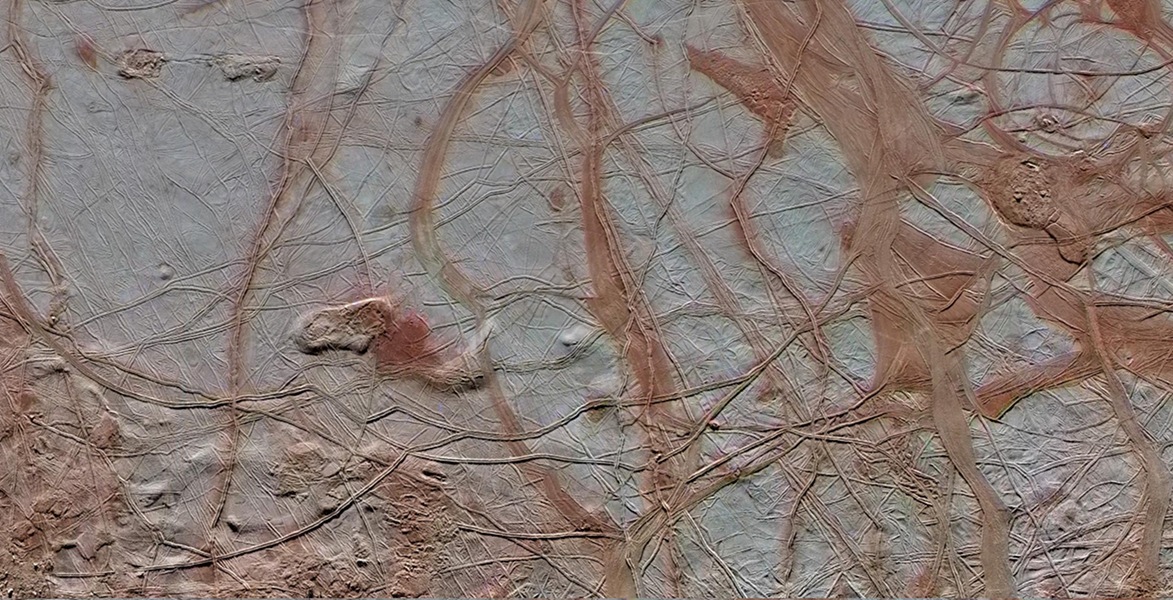I always get giddy when talking about Europa, as many astronomers do. It’s one of the most fascinating places in our solar system when it comes to the search for life. It has lots of water, likely contained in a subsurface ocean. It’s heated though a gravitational tug of war with Jupiter and the other Galilean moons. And, as of recently, it has a chemical production system that matches Earth’s.

I wonder what goes on beneath the thick ice of Europa. Is there an ecosystem filled with alien life down there? Life in Earth’s oceans feels very alien, but creatures from another world could be incredibly different. Though when we look at the potential for life on another world, we tend to compare conditions to the one place we know of that has produced life – Earth.
In a new study, researchers at NASA’s Jet Propulsion Lab (JPL) characterized Europa’s potential for producing Hydrogen and Oxygen without volcanism (which Europa lacks), and compared it to Earth. The relative abundances of these elements indicates the amount of energy available for life.
Hydrogen is produced when fresh seawater comes into contact with rocks in the body’s interior. The water dissolves minerals in the rock, releasing Hydrogen as a byproduct. Oxygen and other oxidants, which can react with the Hydrogen, are formed on Europa’s surface as radiation from nearby Jupiter splits apart water ice molecules. There is evidence that the surface of Europa cycles down into the moon’s interior, bringing the oxidants to where they could be useful for life.
The amazing thing is that the theoretical production of these elements calculated by the researchers is comparable in scale to the Earth, where Oxygen production is about ten times that of Hydrogen. This could make Europa’s subsurface ocean conducive to life. Previously, it was thought that volcanism was necessary for Europa to support life, as any oxidants that were absorbed into the crust would make the ocean too acidic for life. But if the rock is cold, the tidal forces from Jupiter can crack it open to allow more seawater to interact with rock and produce Hydrogen. So volcanism or not, Europa’s production could be just right.
It’s results like this that get me excited about Europa.
